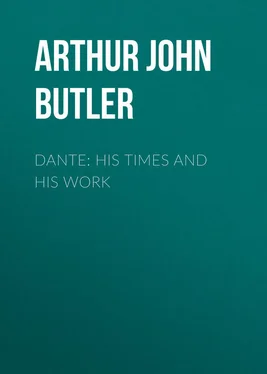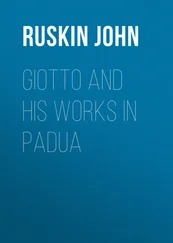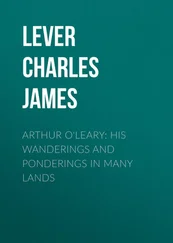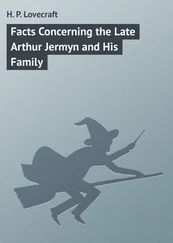Arthur Butler - Dante - His Times and His Work
Здесь есть возможность читать онлайн «Arthur Butler - Dante - His Times and His Work» — ознакомительный отрывок электронной книги совершенно бесплатно, а после прочтения отрывка купить полную версию. В некоторых случаях можно слушать аудио, скачать через торрент в формате fb2 и присутствует краткое содержание. Жанр: foreign_antique, foreign_prose, на английском языке. Описание произведения, (предисловие) а так же отзывы посетителей доступны на портале библиотеки ЛибКат.
- Название:Dante: His Times and His Work
- Автор:
- Жанр:
- Год:неизвестен
- ISBN:нет данных
- Рейтинг книги:3 / 5. Голосов: 1
-
Избранное:Добавить в избранное
- Отзывы:
-
Ваша оценка:
- 60
- 1
- 2
- 3
- 4
- 5
Dante: His Times and His Work: краткое содержание, описание и аннотация
Предлагаем к чтению аннотацию, описание, краткое содержание или предисловие (зависит от того, что написал сам автор книги «Dante: His Times and His Work»). Если вы не нашли необходимую информацию о книге — напишите в комментариях, мы постараемся отыскать её.
Dante: His Times and His Work — читать онлайн ознакомительный отрывок
Ниже представлен текст книги, разбитый по страницам. Система сохранения места последней прочитанной страницы, позволяет с удобством читать онлайн бесплатно книгу «Dante: His Times and His Work», без необходимости каждый раз заново искать на чём Вы остановились. Поставьте закладку, и сможете в любой момент перейти на страницу, на которой закончили чтение.
Интервал:
Закладка:
Another event, sometimes assigned to the period of Dante’s life before his banishment, has somewhat more evidence in its favour. That he visited Paris at least once in the course of his life, the early authorities are agreed; but Villani, Boccaccio, and Benvenuto of Imola, all writing in the fourteenth century, make the visit to have taken place during his exile. It is not until we come to John of Serravalle, Lord of Fermo, who as Bishop of Rimini attended the Council of Constance, and there, at the request of the Bishops of Bath and Wells and Salisbury, prepared a Latin version of the Commedia with commentary, that we find mention of an earlier visit. His testimony is a little suspicious, because in the same sentence he also asserts that Dante studied at Oxford, a statement which, without strong confirmation, it would be very hard to accept. On the other side, it may be said that the silence of the older biographers is not conclusive evidence against the early study at Paris. Dante also went to Bologna, as it would appear, both before and after his banishment; yet while Villani and Boccaccio only name the latter visit, Benvenuto speaks only of the former. It is therefore quite possible that all three may have ignored the first period of study at Paris, or, if there was but one such period, may have assigned it to the wrong part of Dante’s life. Primâ facie it is more probable that he would have undertaken both the long journey and the course of study in his days of “greater freedom and less responsibility,” than when he was not only engaged upon the composition both of his great poem and of several prose treatises, but was taking an active share in political work.
Again, the allusion in the Paradise to the lectures of Sigier bears all the stamp of a personal reminiscence; just as the allusion to the dykes along the coast of Flanders to illustrate those which form the banks of the river Phlegethon, could hardly have occurred to one who had not seen them with his own eyes, though the biographers mention no journey to Flanders. But Sigier’s lectures and his life too were over by 1300.
Another little bit of evidence may be given for what it is worth. Any one who has read the discourses of Meister Eckhart, the founder of the school of German mystics, will be struck by the frequent and close resemblances, not of thought only, but of expression and illustration, which exist between him and Dante. So frequent and so close are these, that the reader can hardly conceive the possibility of their being due to mere coincidence. 25But Eckhart preached and wrote (if he wrote) in German, a language which we have no reason to think that Dante knew; so that the exchange of ideas between them, if any, must have taken place by word of mouth, and in French or Latin. Now, Eckhart was for a long time in Paris – so long that he seems to have been known as “Master Eckhart of Paris” – and left that city in 1302. If he and Dante ever met, it must have been in Paris (for though Eckhart went to Italy in 1302, it appears to have been only on a journey to Rome, the last place save Florence where Dante would then have cared to show himself), and that at some time before 1300.
Lastly, we may question if Dante would have chosen Paris as a place of residence while Philip the Fair was on the throne of France.
If, then, he did visit France before his exile, we can date the visit with some certainty. It can hardly have been before 1290, the year of Beatrice’s death, nor after 1294, the year in which Carlo Martello came to Florence. Dante’s marriage, again, in all probability took place somewhere about the latter year. We know nothing directly of Dante’s doings in this interval; nothing, at any rate, inconsistent with his having been for some considerable period away from Florence.
But we have kept till the last the subject which to many is the only one associated with Dante’s younger life. What, it will be said, about Beatrice? The fashionable theory nowadays seems to be that there undoubtedly was a lady at Florence of that name, the daughter of Folco Portinari, that she was married to Simone de’ Bardi, a member of that great family who were Edward III.’s bankers, and that she died in the flower of her youth. But, say the modern Italian and German writers, this lady – Frau Bardi-Portinari, the latter call her – had no more to do with Dante than any other Beatrice in history. This will seem to many who do not realise on how slight a basis the identification of her rests, to be the very wantonness of paradox. These may be startled to learn that the whole story depends upon the veracity of one man, and that a professed writer of romantic fiction. It is from Boccaccio, and from him alone, that we have learnt to see in Dante’s mystical guide and guardian, in the lost love of his early years, only the idealised and allegorised figure of Folco Portinari’s daughter. What, then, is his evidence worth? To this we can only reply, that Boccaccio was born eight years before Dante’s death; that he lived in Florence from his childhood; that he must have spoken with scores of people to whom the social and literary history of the years preceding 1290 was perfectly familiar; that both Dante and the husband of Beatrice were prominent men; and that Boccaccio can have had no motive for making a statement which, if untrue, he must have known to be so. Further, if the statement had been untrue, it would surely have been contradicted, and some trace of the contradiction would have been found. But, on the contrary, it seems to have been accepted from the first. It is repeated by Boccaccio’s younger contemporary and disciple Benvenuto of Imola, who himself lived for some time in Florence, before all those who would be able from their own recollection to confirm or deny it would have passed away. And Benvenuto, it may be noted, though devoted to Boccaccio, was no mere student, but a shrewd and critical man of the world. Dante’s son Pietro, indeed, says no word to show that Beatrice was anything but a symbol, and in this some of the other early commentators follow him. But this would prove too much. Whether she be rightly identified with Beatrice Portinari or not, it is impossible for any reader possessing the least knowledge of the human heart to see in the Beatrice of the Commedia a symbol merely. Not to mention that it would be quite contrary to Dante’s practice thus to invent a personage for the sake of the symbol, it is absurd to suppose that the “ten years’ thirst” which the sight of her relieves, “the eyes whence Love once took his weapons,” and such-like expressions were intended primarily as references to a neglected study of theology or a previous devotion to a contemplative life. The omission, therefore, of the commentators who interested themselves mainly in the allegory to tell us about the real Beatrice cannot be used as evidence against her existence.
The first supporter of what may be called the “superior” view – namely that the whole story of Beatrice is purely allegorical – was one Giovanni Mario Filelfo, a writer of the fifteenth century, born more than a hundred years after Dante’s death. As a rule, where his statements can be tested, they are incorrect; and on the whole his work appears to be a mass of unwarranted inferences from unverified assertions. It was not till recent times that his theory on the subject found any defenders.
We may, then, pretty safely continue in the old faith. After all, it explains more difficulties than it raises. No doubt if we cannot free ourselves from modern conceptions we shall be somewhat startled not only by the almost deification of Beatrice, but also by the frank revelation of Dante’s passion, with which neither the fact of her having become another man’s wife nor his own marriage seems in any way to interfere. It needs, however, but a very slight knowledge of the conditions of life in the thirteenth century to understand the position. As has been already pointed out, the notion of woman’s love as a spur to noble living, “the maiden passion for a maid,” was quite recent, and at its first growth was quite distinct from the love which finds its fulfilment in marriage. Almost every young man of a literary or intellectual turn seems to have had his Egeria; and when we can identify her she is usually the wife of some one else.
Читать дальшеИнтервал:
Закладка:
Похожие книги на «Dante: His Times and His Work»
Представляем Вашему вниманию похожие книги на «Dante: His Times and His Work» списком для выбора. Мы отобрали схожую по названию и смыслу литературу в надежде предоставить читателям больше вариантов отыскать новые, интересные, ещё непрочитанные произведения.
Обсуждение, отзывы о книге «Dante: His Times and His Work» и просто собственные мнения читателей. Оставьте ваши комментарии, напишите, что Вы думаете о произведении, его смысле или главных героях. Укажите что конкретно понравилось, а что нет, и почему Вы так считаете.




![William Frith - John Leech, His Life and Work. Vol. 1 [of 2]](/books/747171/william-frith-john-leech-his-life-and-work-vol-thumb.webp)
![William Frith - John Leech, His Life and Work, Vol. 2 [of 2]](/books/748201/william-frith-john-leech-his-life-and-work-vol-thumb.webp)





